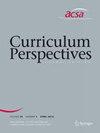Confronting and agonistic: what democracy requires of curricula
Q2 Social Sciences
引用次数: 0
Abstract
Abstract This paper draws upon the philosophical reconstruction of John Dewey to examine the demise of democracy by neoliberal elites as described by the likes of Noam Chomsky, who like Dewey, identifies that a key weakness of democracy is that the ontology or being of people has become largely apathetic. We consequently find ourselves living in a period of “post-democracy” as theorised by Crouch, Mouffe, and Rancière, who identify that imposed consensus by politicians and the media discourages people from dissenting and being agonistic. A major consequence of this is that the masses are diverted from challenging the hegemony of neoliberalism and instead focus upon much lesser issues related to cosmopolitanism. From this analysis, it is identified that what democracy requires of curricula—if they are to offer educational experiences—is that students should embody agonism as a way of thinking. According to Dewey, the method of democracy is to bring conflicts into the open rather than pretend they do not exist, and that the most important conflict is between the super wealthy and the working poor. Therefore, curricula ought to be designed to habituate students to grow in an agonistic way of being in order to challenge the presumed “consensus democracy” that is being used to marginalise the very real conflict the public has with neoliberal hegemony.对抗与对抗:民主对课程的要求
本文借鉴了约翰·杜威的哲学重建,考察了诺姆·乔姆斯基(Noam Chomsky)等人所描述的新自由主义精英对民主的消亡。乔姆斯基和杜威一样,认为民主的一个关键弱点是人们的本体论或存在在很大程度上变得冷漠。因此,我们发现自己生活在一个“后民主”时期,正如克劳奇(Crouch)、墨菲(Mouffe)和朗西 (ranci)所提出的理论,他们认为政治家和媒体强加的共识阻碍了人们持不同意见和表现出敌对态度。这样做的一个主要后果是,群众不再挑战新自由主义的霸权,而是把注意力集中在与世界主义有关的次要问题上。从这一分析中,我们可以确定民主对课程的要求——如果他们要提供教育经验的话——是学生应该体现作为一种思维方式的积极性。杜威认为,民主的方法是将冲突公开化,而不是假装冲突不存在,最重要的冲突发生在超级富豪和劳苦大众之间。因此,课程的设计应该让学生习惯于以一种对抗的方式成长,以挑战假定的“共识民主”,这种民主被用来边缘化公众与新自由主义霸权之间的真实冲突。
本文章由计算机程序翻译,如有差异,请以英文原文为准。
求助全文
约1分钟内获得全文
求助全文
来源期刊

Curriculum Perspectives
Social Sciences-Education
CiteScore
2.50
自引率
0.00%
发文量
21
期刊介绍:
· Encourage curriculum research and scholarship that can lead to more equitable and socially just societies.
· Support policy makers, teachers, parents and students by publishing informed and relevant research directed at improvements in student learning.
· Provide a forum for an international exchange of curriculum ideas and issues.
· Encourage innovative curriculum thinking, multiple ways of knowing and understanding, critical and creative problem solving to develop solutions that can make a difference in the lives of students and their communities.
Australian curriculum scholars, teachers, parents and students are increasingly aware of the globalized world of which they are a part. The curriculum issues that affect them also affect others in this borderless environment. The mission of Curriculum Perspectives, therefore, is to bring Australian curriculum scholarship to the world and to encourage an international exchange of ideas that can enhance curriculum experiences for students across the globe
 求助内容:
求助内容: 应助结果提醒方式:
应助结果提醒方式:


